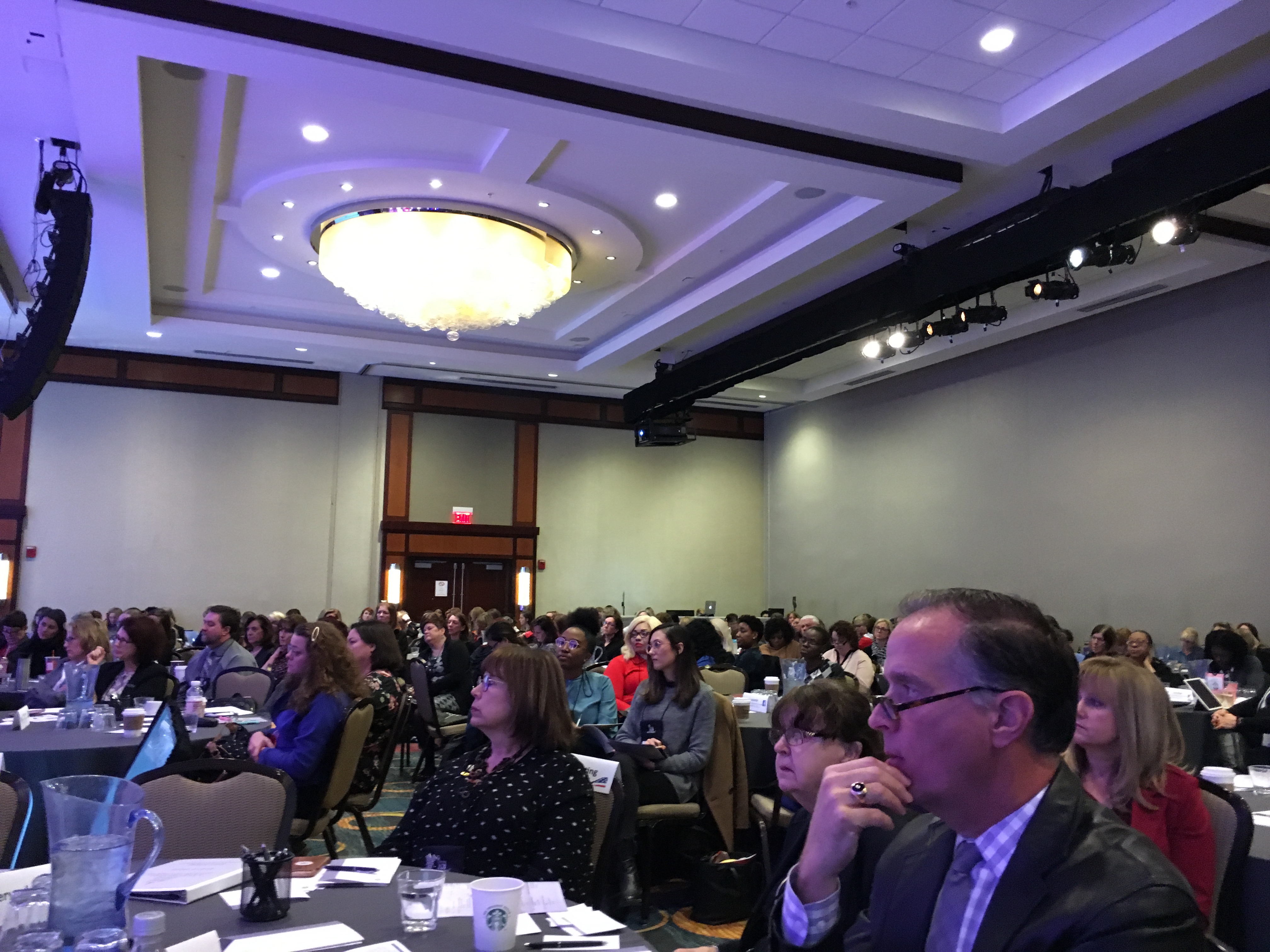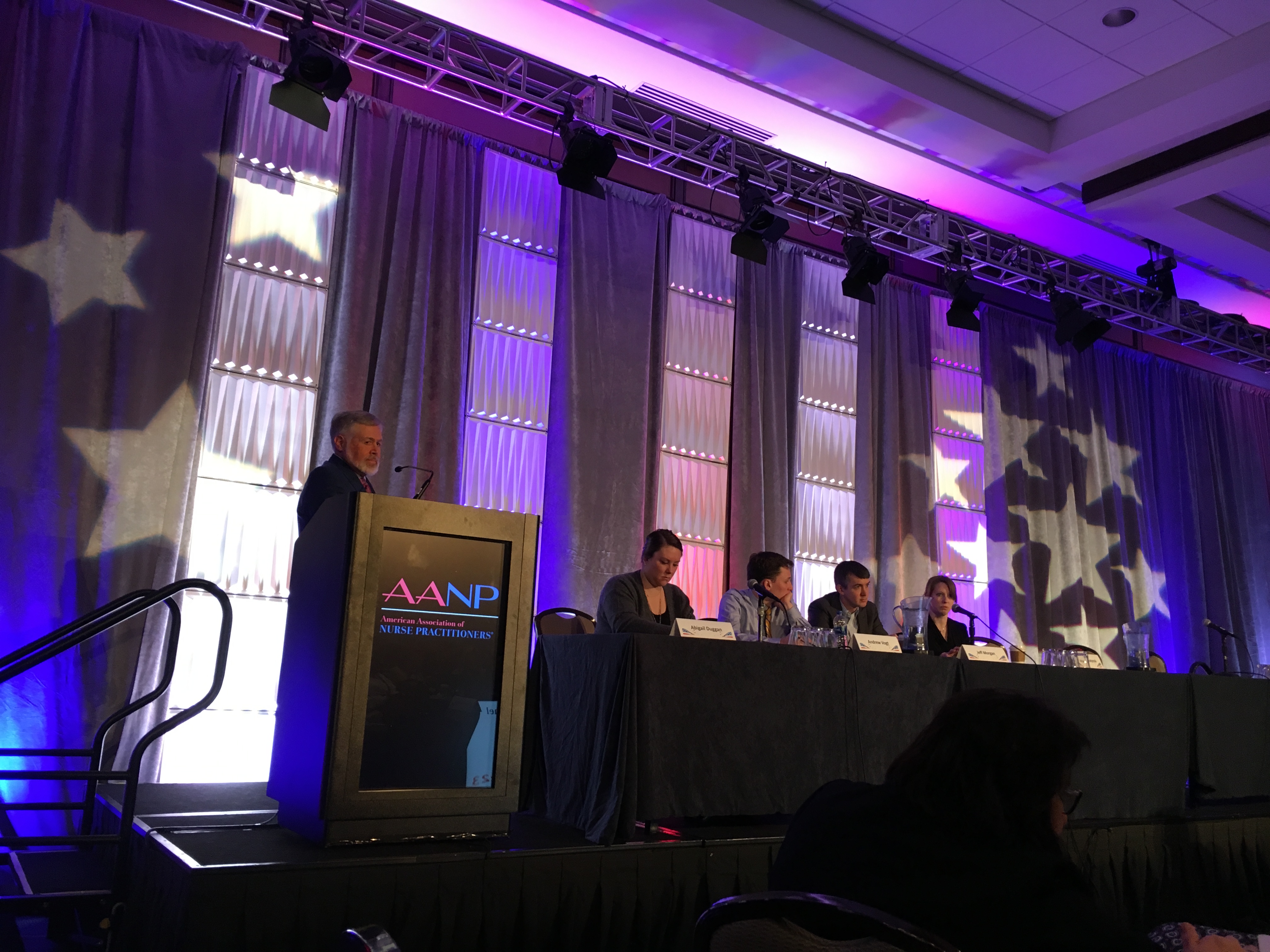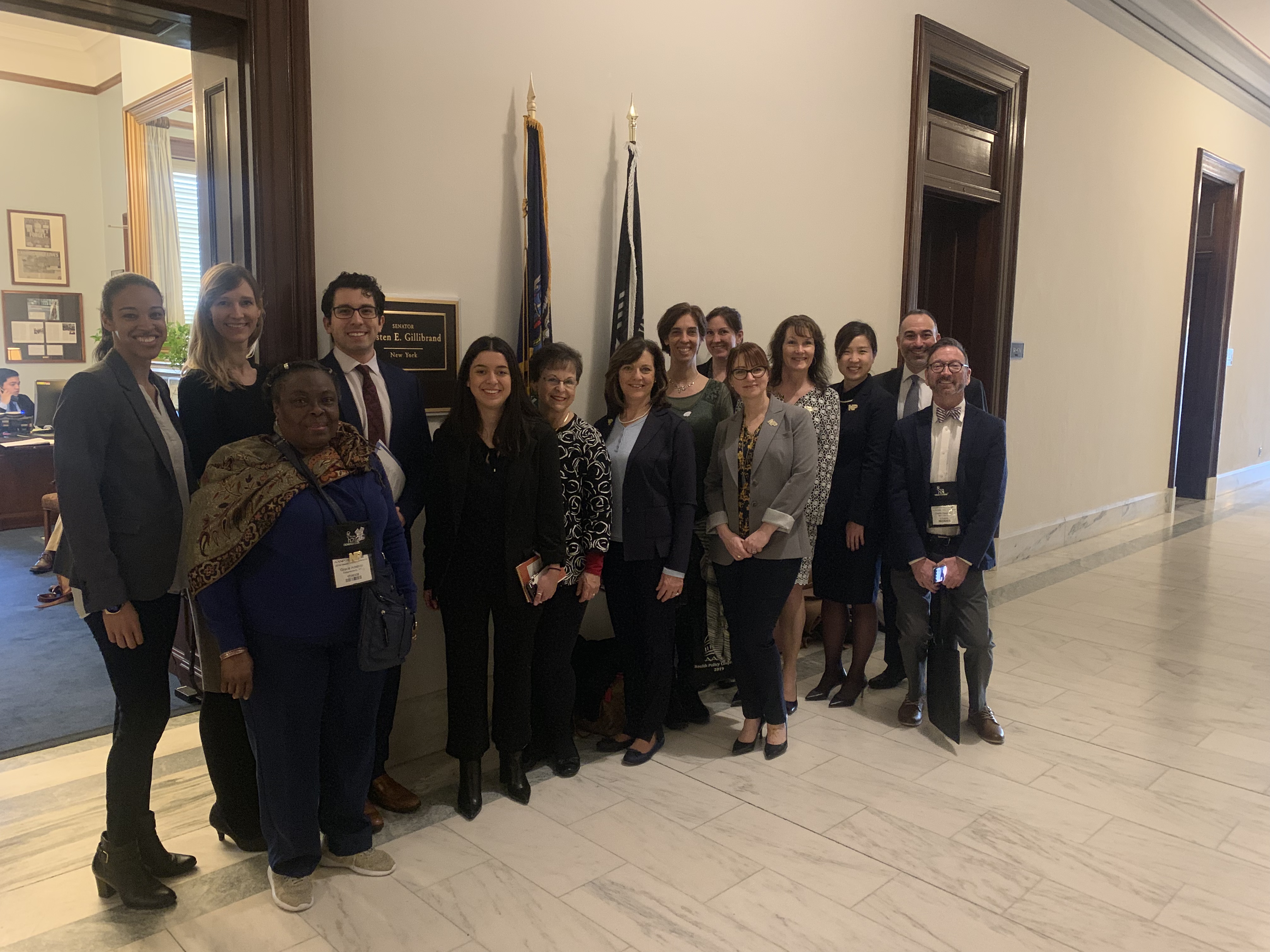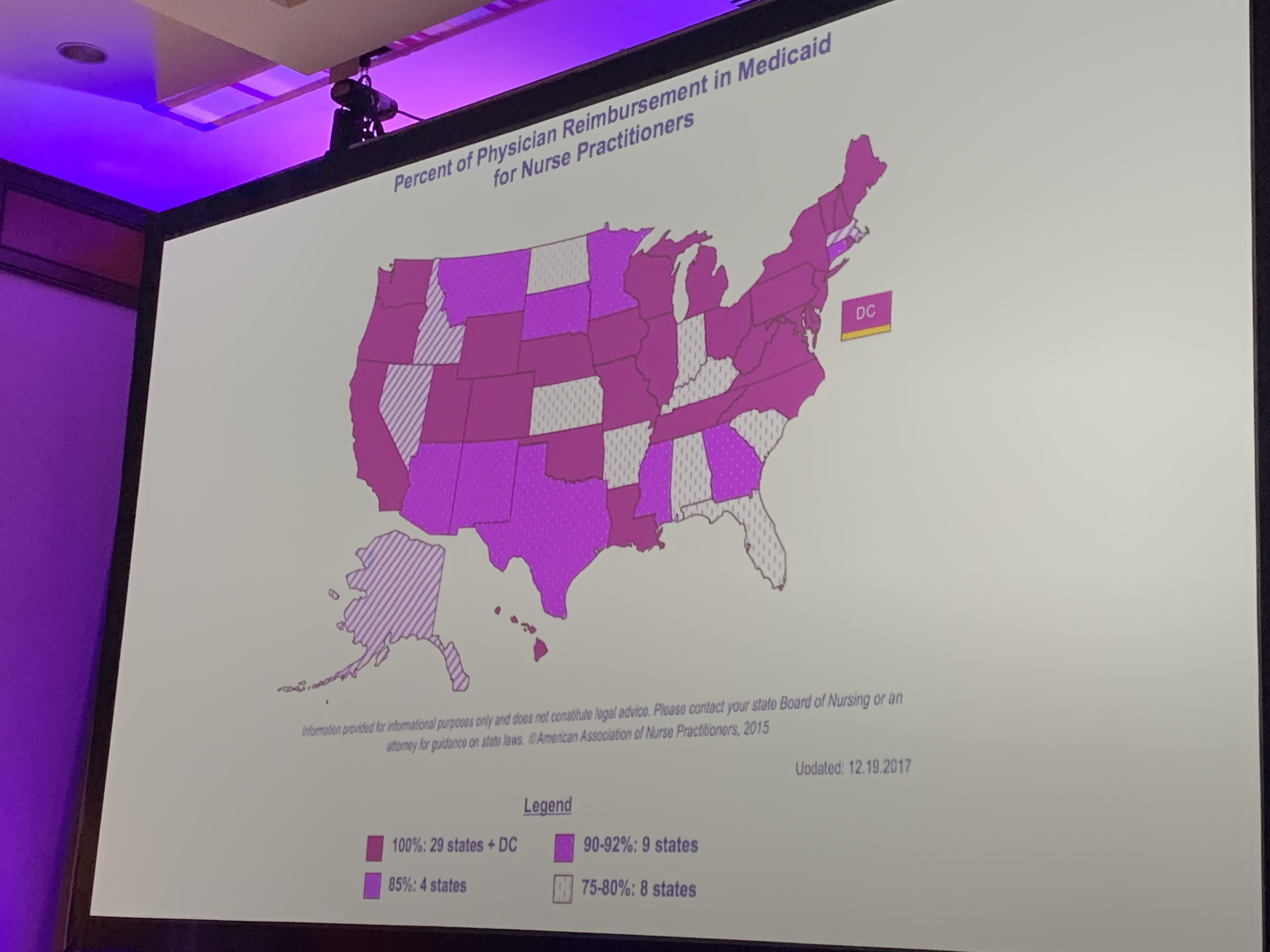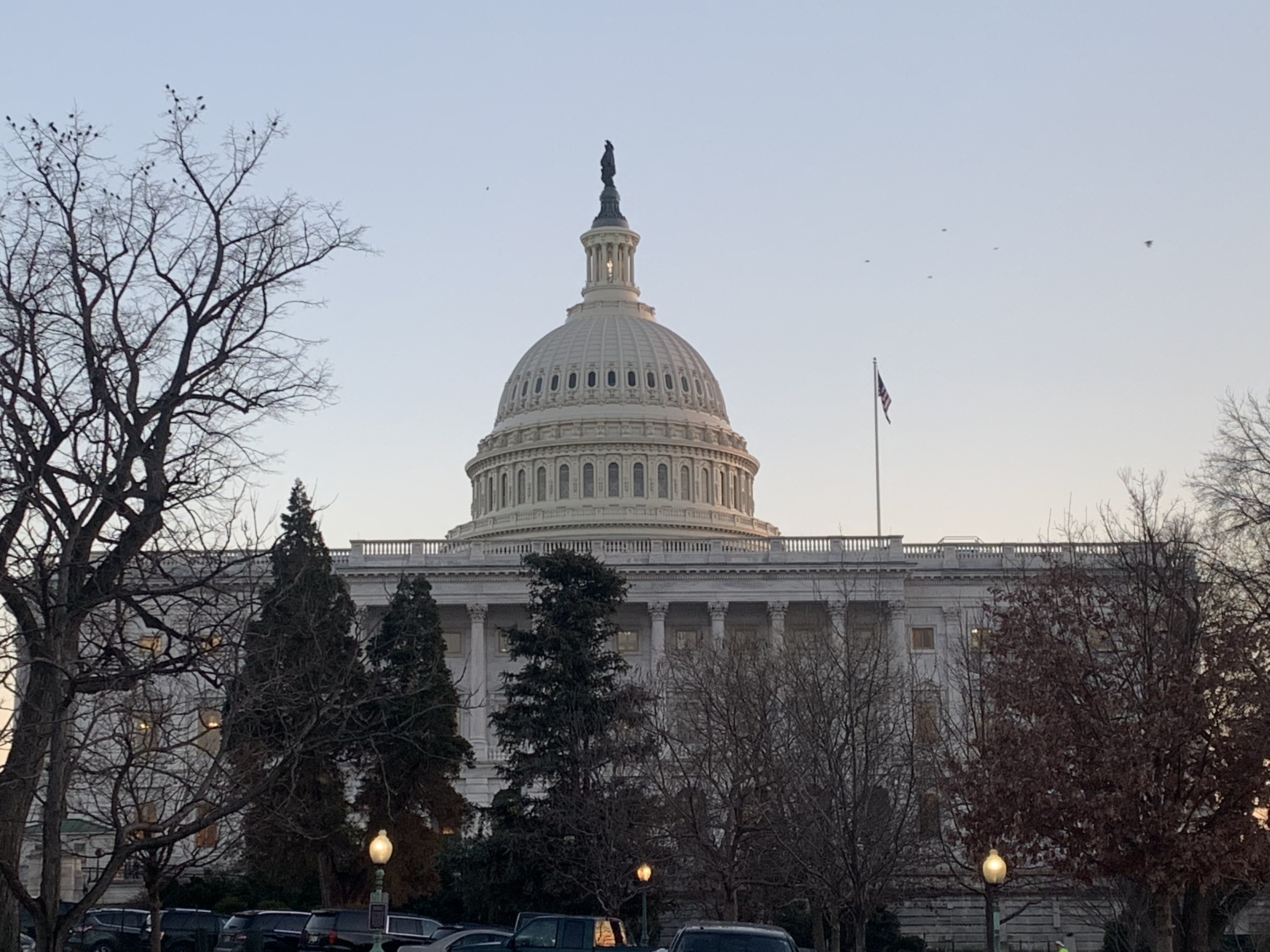By Monica Richey, MSN, ANP-BC/GNP
The 2019 AANP (American Association of Nurse Practitioners) Health Policy Conference was recently held in Washington, DC, where I had the opportunity to represent the Rheumatology Nurses Society. The conference focused on developing skills and insight necessary to advocate effectively at the federal level. Attendees networked with local healthcare professionals, government and industry experts, and elected officials and staff on Capitol Hill to promote patient health through the elimination of federal barriers to practice.
During Day 1 of the 2019 AANP, Paula Neira, JD, MSN, RN, CEN, discussed the issues related to access to care and bias when caring for Transgender patients. She raised awareness regarding proper training when assessing this at-risk population for abuse and domestic violence, the risk for suicide, and substance abuse. Most importantly, in some states, they are denied medical coverage even for chronic conditions.
Marian Grant, DNP, ACNO-BC, ACHPN, FPCN, RN, spoke on the impact of the opioid epidemic when caring for patients with chronic pain. The stigma now affects patients that require narcotics. NPs must practice based on their patient’s need, taking into consideration their diagnosis to make appropriate referrals to pain services and palliative care.
Following these sessions, I attended a lecture focused on an update on MACRA, which included discussions on the effects of Medicare reimbursement by 2020. NPs must choose between 257 different quality measures (vaccination, tobacco cessation, aspirin use, cancer screening), and they base payment on MIPS (merit-based incentive payment systems). More information on who qualifies for MIPS and enrollment qualifications are on the CMS website.
The sessions from Day 1 proved to be informative as I had the privilege of hearing from other significant voices, including the Congressional staff panel. A panel of four people, two that identified as Democrats and two more that identified as Republicans, talked about issues in healthcare, from licensing and telemedicine to PBM’s and equal pay.
Mary Wakefield, the only nurse to ever be Deputy Secretary of Health and Human Services (HHS), shared essential ways to communicate when addressing questions from elected officials and staff. At one point, Wakefield was also the administrator to the Health Resources and Services Administrator (HRSA).
Furthermore, I had the opportunity to learn about Project Echo, a free service created by the University of New Mexico which provides PCPs in rural areas with access to online training in diverse specialties, such as HIV and infectious diseases. An important topic also addressed was rural health care. They examined the ways NPs practice independently in rural areas despite licensing restriction. However, there is still a significant lack of reimbursement. There is a request for Medicare to reimburse APPs at 100% of the fee, but the federal government still perceives that this can increase in costs as physicians are likely to increase their prices.
During a session with Tara Isa-Koslov about the Federal Trade Commission Update, she spoke about the involvement of the FTC in several issues of health care from consumer fraud (scams) and consumer competition protections. We want to make sure patients have access to care in all areas and that there are enough competition and plenty of consumer choices.
Overall, the 2019 AANP Health Policy Conference was a valuable experience. I was able to interact with industry representatives and learn about their products and services, receive up-to-the-minute health policy updates, and listen to presentations by leading health policy authorities about the information that is relevant to the mission and vision of the Rheumatology Nurses Society.
